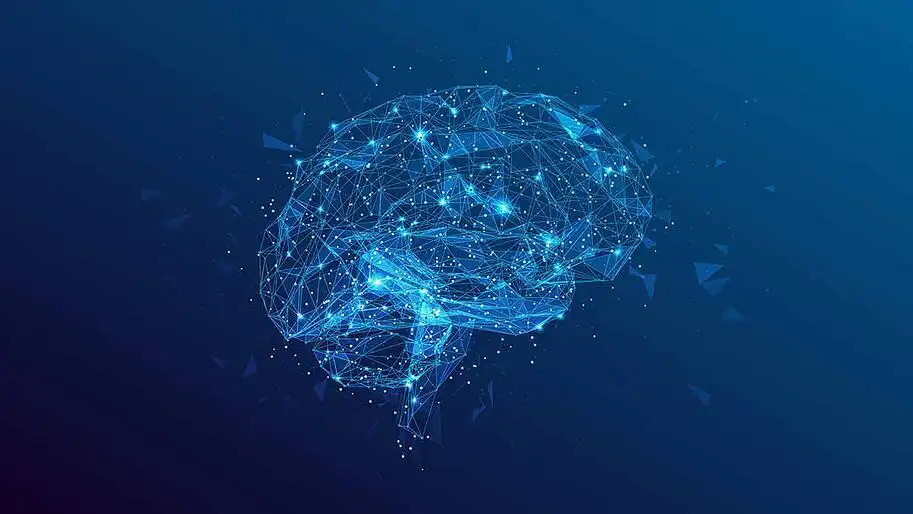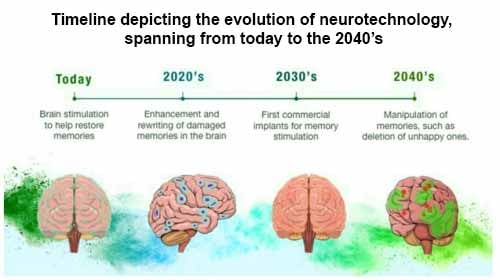
Jan 27, 2023
Blog Digital World What the rise of neurotechnology means for the future of healthcare
Neurotechnology seeks to understand, enhance, and repair the nervous system. A neurotech device is a technology that continuously controls and stimulates neural impulses. While a portion of neurotechnology is used for research, to study mental illness or sleep patterns, increasingly it is being used to influence the brain or nervous system for therapeutic or rehabilitative purposes.
Conditions such as Parkinson’s, Alzheimer’s, major depression, and brain injury could all find relief through neurotechnology. The devices used in alleviating these conditions are of infinite value to healthcare; as populations become increasingly older, and life expectancy increases, the demand for effective treatment for neurological disorders will climb. This is pushing the market for neurotech devices into new avenues of growth, with BCC Research expecting the market to reach $24.2 billion by 2027.
While neurotech contains enormous possibilities, it’s already finding significant applications in science and healthcare. The most typical use cases of neurotechnology is:
Brain imaging, otherwise known as magnetic resonance imaging (MRI), is a key use case of neurotechnology. The process involves recording the magnetic fields created by electrical activity in the brain to map brain activity. Brain tumors, strokes, and developmental problems can all be identified through MRIs, and they can also help clinicians map the human brain.
A neurostimulation device stimulates the nervous system and brain to affect brain activity. There are three types of neurostimulation: transcranial magnetic stimulation, which uses electromagnetic stimulation; transcranial direct current stimulation, which uses a small electrical current; and low-field magnetic stimulation, which uses pulses of electromagnetic energy.
Neuro devices are the technologies used to monitor or regulate brain activity through a neural implant. Though much of this field is still in the research stages, there’s optimism that Parkinson's will be treated using this technology, offering hope for the broader spectrum of neurological disorders.
Drugs are also used as part of neurotherapy, to treat disorders like anxiety and depression.

There’s huge scope for neurotechnology to positively alter the brain’s chemistry. New research is already highlighting the potential uses of neurotechnology for improving speech in paralyzed individuals and treating post-traumatic stress disorder.
In the near future, neurotechnology will create new connections between disjointed parts of the nervous system. For people who suffer from chronic pain, anxiety, and autism, this could be life-changing. These conditions can be debilitating for people in many ways, with higher associated costs and an impacted quality of life.
It’s also likely that significant leaps will be made within brain-computer interfaces (BCIs). Already one of the most popular branches of neurotech, the technology allows an individual to control an electronic device through a BCIs. The benefits of this technology is significant. It could allow patients with limb loss to intuitively control a robotic arm, or offer wheelchair users granular control of their mobility. Outside of healthcare, it could allow gamers to dictate their gameplay, transforming the way we interact with the world around us.
Naturally, these changes could be huge. Not only could it transform the lives of patients suffering from debilitating, long-term health conditions, but it could also further bridge the gap between humans and technology. Giants like Google and Facebook are developing their own research into neurotechnology devices, representing the technology’s tangibility in impacting our day-to-day lives.
While powerful, neurotechnology is a controversial field. Neurotechnologies can potentially alter a person’s personality, which could trigger a wealth of undesirable effects, like depression. The potential for abuse is also strong, with ethical questions raised about patients’ rights to their data. If data surrounding the innermost workings of someone’s brain fell into the wrong hands, it could be used for discriminatory or nefarious purposes.
In 2022, UNESCO published a report on the “Ethical Issues of Neurotechnology,” which calls for the creation of “neurorights”, outlining the need for mental privacy by adopting laws that protect brain activity and freedom of thought regarding neurotechnologies.
Big questions remain about how neurotechnology will unfold in the future. But under the right circumstances and with the proper protections in place, the industry could positively impact numerous industries, changing people’s lives for the better.
It’s evident that neurotechnology offers significant potential to transform the treatment of brain conditions. This is already being reflected in the landscape, with neurotech dominating most modern biotech markets. Investments in neurotechnology are increasing competition among players as they jockey to meet what they see as growing demand for neurotech devices in the future.
In recent years, neurotechnology start-ups have attracted the attention of venture capitalists. Cash is piling in, propelling rapid market growth and snowballing funding. Brain imaging in particular is booming as an area of clinical concentration, as it allows researchers to observe the brain’s activity directly during experiments. This is contributing to the increasing number of start-up efforts and uptick in venture funding.
BCC Research’s latest report dives into the market dynamics for neurotech devices. Evaluating the market’s current and future outlook, the report acts as an invaluable tool for those seeking to understand the business potential of this technology.
Download your complimentary report overview here, or consider becoming a member of the BCC Research library today. We publish a huge volume of reports within the Information Technology category. Membership grants access to the full scope of reports in this field, allowing for a holistic and granular approach to these indispensable markets. Enquire into membership today through the link below.

Olivia Lowden is a Junior Copywriter at BCC Research, writing content on everything from sustainability to fintech. Before beginning at BCC Research, she received a First-Class Master’s Degree in Creative Writing from the University of East Anglia.

From smartphones to satellites, antennas play a vital role in enabling the seaml...

Introduction Artificial Intelligence (AI) and the Internet of Things (IoT) are r...

We are your trusted research partner, providing actionable insights and custom consulting across life sciences, advanced materials, and technology. Allow BCC Research to nurture your smartest business decisions today, tomorrow, and beyond.
Contact UsBCC Research provides objective, unbiased measurement and assessment of market opportunities with detailed market research reports. Our experienced industry analysts assess growth opportunities, market sizing, technologies, applications, supply chains and companies with the singular goal of helping you make informed business decisions, free of noise and hype.